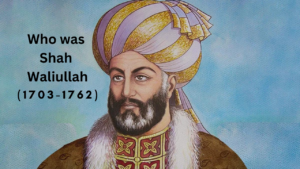Shah Waliullah

Shah Waliullah: An Indo-Islamic Scholar and Reformer
Shah Waliullah (1703-1762) was a renowned Islamic scholar, theologian, and reformer in India. Born in Delhi, he is credited with laying the foundations for modern Islamic thought in the Indian subcontinent. His works aimed at revitalizing Islamic teachings and practices while addressing the social, political, and economic challenges of his time. His legacy continues to be studied, especially by students preparing for the Class XI Entrance at institutions like AMU (Aligarh Muslim University).
Achievements of Shah Waliullah:
-
Translation of the Quran: Shah Waliullah was the first to translate the Quran into Persian, making the sacred text accessible to a broader audience in India. This was a significant step towards religious education and understanding, bridging the linguistic gap for many non-Arabic speaking Muslims in the region.
-
Intellectual Contributions: He wrote numerous books and treatises on various aspects of Islam, including theology, jurisprudence, and mysticism. His major works include “Hujjat Allah al-Baligha” and “Izalat al-Khafa.” These texts have been crucial in shaping Islamic thought and are still referenced by scholars today.
-
Educational Reform: Shah Waliullah emphasized the importance of education and established a madrasa in Delhi, which became a center for Islamic learning and produced many prominent scholars. His approach to education combined traditional Islamic teachings with a rationalist perspective, which was revolutionary at the time.
-
Synthesis of Islamic Thought: He sought to reconcile different schools of Islamic thought, advocating for unity among Muslims. His efforts helped bridge the gap between the Sunni and Shia communities and various Sufi orders, promoting a more inclusive understanding of Islam.
Reforms and Contributions in Specific Terms:
-
Islah (Reformation): Shah Waliullah‘s reform efforts, or Islah, focused on purifying Islamic practices and beliefs from un-Islamic influences and innovations (Bid’ah). He called for a return to the core principles of Islam and opposed practices that he saw as deviations from true Islamic teachings.
-
Ijtihad (Independent Reasoning): He encouraged the use of Ijtihad, or independent reasoning, to interpret Islamic teachings in the context of contemporary issues. This was a significant move towards making Islamic jurisprudence more adaptable and relevant to the changing times.
Trivia and Lesser-Known Facts:
-
Pilgrimage to Mecca: Shah Waliullah performed the Hajj and studied under prominent scholars in Mecca and Medina, which profoundly influenced his thought and teachings. His time in the holy cities allowed him to gain a deeper understanding of Islamic jurisprudence and spirituality.
-
Political Involvement: He was actively involved in political matters, advising Mughal rulers and attempting to unite various Muslim factions to resist the decline of the Mughal Empire. His political activities were aimed at ensuring that Islamic principles were upheld in governance.
-
Family Legacy: His family continued his scholarly and reformist tradition, with his sons and grandsons playing significant roles in the Islamic revival movements in India. This legacy of scholarship and reform has left a lasting impact on the region’s Islamic thought and practice.
Test Your Knowledge on Shah Waliullah. Take an Interactive Quiz.
Read More on Shah Waliullah Dehlawi